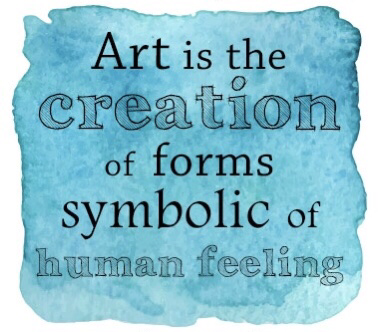Therapeutic Art Coaching
“Just when the Caterpillar
thought The World was Ending...
He Turned Into a Butterfly
Creating Environments
through the Vehicle of visual & expressive
ARTS
to Help Plug Others Into their CREATOR
by
Fostering Spiritual Growth
By combining
Theraputic Art, Christ-Centered CBT Techniques
and
Integrated Arts in Scriptural Education,
I Seek to
Heal Brokenness
and
Redeem Fullness
through the
Transformative Healing Power
of the
HOLY SPIRIT
…And it is by
Grace
We are Saved through Faith
Genesis 1:1
Of Potter and Potsherds:
Isaiah 40 & 45
He Spoke, and it Came
to Be
Psalm 19; 33; 139
God spoke the universe into Existence
God’s Creative ACT
of speaking matter, life,
and Being into
Existence out of nothing
sets Him
Apart as GOD
This is one
Reason we Worship God
As the psalmist writes:
“By the word of the Lord the heavens were made,
their starry host by the breath of his mouth.
He gathers the waters of the sea into jars;
he puts the deep into storehouses.
Let all the earth fear the Lord;
let all the people of the world revere him.
For he spoke, and it came to be;
he commanded, and it stood firm.”
Psalm 33:6-9
Because
God spoke everything into existence,
HIS CREATION
also says something about God
Creation
“POURS forth SPEECH”
in that it reveals
what is TRUE about God
It REVEALS His GLORY
Our words are closely CONNECTED
with our selves
There is an intimacy between our
WORDS and our BEING
Because God spoke the world into existence,
he loves what He has made
This is particularly TRUE in RELATION
to us humans,
WHO ARE MADE in HIS IMAGE
God KNEW
EACH and EVERY ONE of us
before we were even BORN
He knows us better than we know ourselves
As the psalmist says,
Such
KNOWLEDGE is too WONDERFUL
for Me
In God’s CREATIVE ACT
then, we
EXPERIENCE both
God’s transcendent GLORY
and
his CLOSE PRESENCE
All that
Has been Made POINTS US back to
the ORIGINATOR
We were made to DE-LIGHT in what has
been
CREATED but to FIND our COMPLETENESS
in the ONE WHO CREATED
The Word Became Flesh
In the beginning was the Word,
and the
Word was with God, and the
Word was God.
He was with God in the beginning.
Through him all things were made;
without him
nothing was made that has been made.
In him was life, and that life was the
light of all mankind.
The light
shines in the darkness,
and the
darkness has not overcome it
There was a man SENT from God whose
NAME was John.
He came as a
WITNESS to TESTIFY concerning
that LIGHT,
so that through him all might
BELIEVE
He himself was not the LIGHT
He came as a WITNESS to the LIGHT
The TRUE LIGHT
that gives LIGHT to everyone was COMING
into the WORLD
He was in the world,
and though
the world was made through him,
the
world did not RECOGNIZE him.
He came to that which was his own,
but his own did not receive him.
Yet to all who did receive him,
to those who believed in his NAME
he gave the
right to become children of God
children born not of natural descent,
nor of human
decision or a husband’s will,
but
BORN OF GOD
The WORD
became FLESH and made his
DWELLING AMONG US
We have
SEEN his GLORY, the GLORY
of the one and only Son,
who came from the Father,
FULL of GRACE and TRUTH
Anew Light Ministries
No one knows us like Jesus, and nothing can
heal like Jesus
The Bible is God's Word to each of us, andWe are invited to cocreate with the
true creator
ART Heals
and so does the living
JESUS
Where is God's GPS calling YOU?
Hi, thanks for visiting!
I’m Lindsey, a
wife, mother of two,
and my three biggest passions are family, God, and art!
In 2021 I received my therapeutic Arts life coach Certification
through which I combine two of my biggest
passions, faith and art!
I began regular biblical studies around a decade ago, and
My deepening
relationship with Christ
began to come to fruition
following the birth of my second child.
Through my passion of creating art,
I discovered that the process can not only
BE very therapeutic
but can also deepen your spiritual connection.
Through my Art background and
journey
with experiencing the transformative Christ,
my experiences have called me to not only
share the
VISION of GOSPEL GLORY
and personal testimony through my art,
but to help others heal brokenness and redeem fullness
through embracing the
transformative power of Christ!
The "GOOD NEWS" is
Your creativity has a "story to tell"
All too often,
psychology and spirituality are kept in separate boxes,
lessening the power of each to work effective changes.
Through the therapeutic art process of art making and art expression combined with
Christ-centered healing, I know the spirit has the power to profoundly transform.
Just as God transformed the resurrected Christ through his suffering
at Calvary, God uses our struggles and pain for a greater
purpose through the power of his
idwelling spirit
The more we paint, the more we see.
Through the process of
therapeutic art we may
"uncover his design"
in
"Anew Light,”
where redemption lives and weakness is is made whole
THROUGH HIM
While teaching Art to students
in underserved schools and second-language Communities in
SW FL,
I was privileged to see and be a part of the hope, joy, and transformation
that I witnessed occurring in kids who may have had the first opportunity
in their lives to explore their creativity and talents
through different Art classes and mediums.
The classroom became a safe haven for many who found
their safe place at school. A Lot of my kiddos were in very bad life situations.
Being a part of a team of people who sacrificed themselves beyond limits
every day to build the kids and school from the
ground up,
and seeing kids living in hopeless, impoverished and drug prevalent situations change into hopeful,
empowered and prepared individuals was forever life-changing.
I witnessed
students in my class who, in high school, were taking their very first Art class.
Being fully devoted, and earning their trust through a lot of effort and Time,
I saw teenagers who in the beginning cursed me and stole from me daily,
end up staying after school in my room to work on art and tell me about their struggles at home.
The raw talent was mind-blowing to me, and seeing these kids
realize
their potential for their first time in their lives was a
TRUE GIFT
Our classroom walls were
murals, and our ceiling tiles were each painted by each student
and displayed the
diversity and unity of our culture.
Many students were first and second generation immigrants from a
hodge podge of Latino Islands, so needless to say- we had
A LOT of FUN
creating and uniting the different cultures
Like all of you creative beings, creating some form of Art is a necessary outlet for me.
I encourage everyone to explore their hidden talents with the vehicle of art,
and perhaps,
YOU will discover more than your creative gift- but
your purpose revealed through our creator
'Christ is the essence of Spiritual Transformation,
Scripture
is the TRUE key that unlocks the spirit...
For We are Saved
by
Grace through Faith
Anew Light Ministries
No one knows us like Jesus, and nothing can
heal like Jesus
The Bible is God's Word to each of us, andWe are invited to cocreate with the
true creator
ART Heals
and so does the living
JESUS
Where is God's GPS calling YOU?
Hi, thanks for visiting!
I’m Lindsey, a
wife, mother of two,
and my three biggest passions are family, God, and art!
In 2021 I received my therapeutic Arts life coach Certification
through which I combine two of my biggest
passions, faith and art!
I began regular biblical studies around a decade ago, and
My deepening
relationship with Christ
began to come to fruition
following the birth of my second child.
Through my passion of creating art,
I discovered that the process can not only
BE very therapeutic
but can also deepen your spiritual connection.
Through my Art background and
journey
with experiencing the transformative Christ,
my experiences have called me to not only
share the
VISION of GOSPEL GLORY
and personal testimony through my art,
but to help others heal brokenness and redeem fullness
through embracing the
transformative power of Christ!
The "GOOD NEWS" is
Your creativity has a "story to tell"
All too often,
psychology and spirituality are kept in separate boxes,
lessening the power of each to work effective changes.
Through the therapeutic art process of art making and art expression combined with
Christ-centered healing, I know the spirit has the power to profoundly transform.
Just as God transformed the resurrected Christ through his suffering
at Calvary, God uses our struggles and pain for a greater
purpose through the power of his
idwelling spirit
The more we paint, the more we see.
Through the process of
therapeutic art we may
"uncover his design"
in
"Anew Light,”
where redemption lives and weakness is is made whole
THROUGH HIM
While teaching Art to students
in underserved schools and second-language Communities in
SW FL,
I was privileged to see and be a part of the hope, joy, and transformation
that I witnessed occurring in kids who may have had the first opportunity
in their lives to explore their creativity and talents
through different Art classes and mediums.
The classroom became a safe haven for many who found
their safe place at school. A Lot of my kiddos were in very bad life situations.
Being a part of a team of people who sacrificed themselves beyond limits
every day to build the kids and school from the
ground up,
and seeing kids living in hopeless, impoverished and drug prevalent situations change into hopeful,
empowered and prepared individuals was forever life-changing.
I witnessed
students in my class who, in high school, were taking their very first Art class.
Being fully devoted, and earning their trust through a lot of effort and Time,
I saw teenagers who in the beginning cursed me and stole from me daily,
end up staying after school in my room to work on art and tell me about their struggles at home.
The raw talent was mind-blowing to me, and seeing these kids
realize
their potential for their first time in their lives was a
TRUE GIFT
Our classroom walls were
murals, and our ceiling tiles were each painted by each student
and displayed the
diversity and unity of our culture.
Many students were first and second generation immigrants from a
hodge podge of Latino Islands, so needless to say- we had
A LOT of FUN
creating and uniting the different cultures
Like all of you creative beings, creating some form of Art is a necessary outlet for me.
I encourage everyone to explore their hidden talents with the vehicle of art,
and perhaps,
YOU will discover more than your creative gift- but
your purpose revealed through our creator
'Christ is the essence of Spiritual Transformation,
Scripture
is the TRUE key that unlocks the spirit...
For We are Saved
by
Grace through Faith
In the
Beginning was The Word,
and the
Word was with God,
and the
Word Was God
The Book of Genesis
from
Greek Γένεσις, Génesis;
Biblical Hebrew: בְּרֵאשִׁית,
romanized: Bərēʾšīṯ, lit.
'In [the] beginning')
is the
First Book of the Hebrew Bible
and the
Christian Old Testament.
The Gospel of John begins much like Genesis,
the “book of beginnings.”
The account of creation in Genesis begins with the phrase
In the beginning (Genesis 1:1),
which is translated from the Hebrew word bereshit.
John 1:1a: en arche, or “in the beginning.”
“In the beginning was the Word” (John 1:1). To the audience receiving the gospel, John’s intentions in this statement would be clear—“the Word” is connected with the God of Israel, the Creator of all things. John further explains this idea two verses later in John 1:3, “All things came into being through Him, and apart from Him nothing came into being that has come into being”
“The Word”
is the sole means by which reality finds its existence—He is the Creator of all things, and without Him no created thing would exist. Before anything was created, “the Word” existed.
“
The NEW CREATION
is described in 2 Corinthians 5:17:
“Therefore, if anyone is IN CHRIST
he is ANEW CREATION
the old has gone,
THE NEW HAS COME!
The word “therefore” refers us back to verses 14-16 where Paul tells us that all believers have died with Christ and no longer live for themselves. Our lives are no longer worldly; they are now spiritual. Our “death” is that of the old sin nature which was nailed to the cross with Christ. It was buried with Him, and just as He was raised up by the Father, so are we raised up to “walk in newness of life” (Romans 6:4). That new person that was raised up is what Paul refers to in 2 Corinthians 5:17 as the “new creation.”
The
NEW CREATION
is a
wondrous thing, formed in
the
MIND of GOD and
CREATED by His POWER
and
FOR HIS GLORY
The New Jerusalem,
which is also called the
Tabernacle of God,
the
Holy City, the City of God,
the Celestial City, the City Foursquare, and
Heavenly Jerusalem,
is literally
Heaven on Earth
It is referred to in the Bible in several places
(Galatians 4:26; Hebrews 11:10; 12:22–24; and 13:14),
but it is most fully described in
Revelation 21

.
Matthew 28:19–20
contains what has come to
be called
The
Great Commission:
“Therefore go and make disciples of all nations,
baptizing
them in the NAME
of the
Father and of the Son and
of the
Holy Spirit,
and Teaching
them to obey everything
I have commanded
YOU
And surely
I AM
With YOU Always,
to the
VERY END of the AGE.”
Jesus gave this command to the apostles shortly before
He ascended into heaven, and it
essentially outlines what
Jesus expected the apostles
and those who followed them to do in His absence.
It is interesting that, in the original Greek, the
only direct command in
Matthew 28:19–20 is “make disciples.”
The
GREAT COMMISSION
instructs us to make
DISCIPLES
while we are
going throughout the World
Matthew 28:19–20
contains what has come to
be called
The
Great Commission:
“Therefore go and make disciples of all nations,
baptizing
them in the NAME
of the
Father and of the Son and
of the
Holy Spirit,
and Teaching
them to obey everything
I have commanded
YOU
And surely
I AM
With YOU Always,
to the
VERY END of the AGE.”
Jesus gave this command to the apostles shortly before
He ascended into heaven, and it
essentially outlines what
Jesus expected the apostles
and those who followed them to do in His absence.
It is interesting that, in the original Greek, the
only direct command in
Matthew 28:19–20 is “make disciples.”
The
GREAT COMMISSION
instructs us to make
DISCIPLES
while we are
going throughout the World












































































